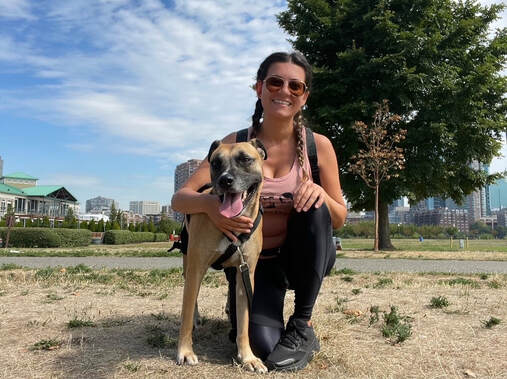Healthy Body
|
|
According to Johns Hopkins Medicine, “Premenstrual dysphoric disorder (PMDD) is a much more severe form of premenstrual syndrome (PMS). It’s a severe and chronic medical condition that needs attention and treatment. Lifestyle changes and medicines can help manage symptoms.”
Risk factors include: a family history of PMS or PMDD; family history of depression; postpartum depression or other mood disorders; cigarette smoking; poor social support; abuse and trauma.
PMDD is a serious, chronic condition and may be treated with hormone therapies, antidepressants, anti-inflammatory medication, and lifestyle choices, such as decreasing sugar, caffeine and alcohol in your diet as well as exercising regularly.
Risk factors include: a family history of PMS or PMDD; family history of depression; postpartum depression or other mood disorders; cigarette smoking; poor social support; abuse and trauma.
PMDD is a serious, chronic condition and may be treated with hormone therapies, antidepressants, anti-inflammatory medication, and lifestyle choices, such as decreasing sugar, caffeine and alcohol in your diet as well as exercising regularly.
Myrna Beth Haskell, executive editor, talked with Brooke Oliveras, a preschool teacher from New Jersey, about her journey with PMDD.
How did you know something was wrong?
When I was a teenager, I was in a lot of pain. I would need to take two days off from school. I would have a very heavy menstrual cycle, and I literally felt immobile. When I went to the doctor, his fix for it was to go on birth control. I avoided doing this until I turned 18. Birth control medication helped with the pain, but after being on it for a long time, it started affecting my mind. [Some studies have shown that long-term use of birth control can cause worsened depression or mood changes.]
When were you diagnosed? Did you suffer for a long time before your diagnosis?
How did you know something was wrong?
When I was a teenager, I was in a lot of pain. I would need to take two days off from school. I would have a very heavy menstrual cycle, and I literally felt immobile. When I went to the doctor, his fix for it was to go on birth control. I avoided doing this until I turned 18. Birth control medication helped with the pain, but after being on it for a long time, it started affecting my mind. [Some studies have shown that long-term use of birth control can cause worsened depression or mood changes.]
When were you diagnosed? Did you suffer for a long time before your diagnosis?
|
I was diagnosed in my 30s. I was battling with this on my own and suffered with symptoms for 20 years before I had a specific diagnosis. I’ve talked with other women, and this seems typical – it often takes a long time to get diagnosed.
Did you have any of the typical risk factors or triggers? I am a child of abandonment – my mother abandoned me when I was 12. I experienced sexual and physical abuse as well. [Research has shown that certain psychological factors contribute to PMDD symptoms.] I finally decided on my own to see a psychologist. I told her what was going on and described my symptoms. She knew immediately that I had PMDD. She didn’t go into detail. She just gave me a paper and medication. She said I might only need to take the medication for six months. When my insurance stopped covering it, I went off the medication. What are your symptoms? I become irritable and very tired. Even though I’m exceptionally tired, I get extreme insomnia. I also experience night sweats and acute pain in my lower extremities. For instance, I have to lift my leg to get into the car. I have no desire to go outside or shower. I cry a lot. I experience brain fog, noise sensitivity, and I crave sugars and gluten. I’ve also felt suicidal. |
Perimenopause and PMDD
Both PMS and PMDD can worsen during the years of perimenopause and generally resolve when menopause begins. But during perimenopause, when periods are irregular, it can be hard to predict what to expect. Women are more prone to symptoms during perimenopause, and perimenopause already has its own difficult set of symptoms. Symptoms may get worse in your late 30s and 40s as you approach menopause because your hormones are shifting. Continue to manage your systems using self-care measures (healthy eating, healthy sleep patterns, regular exercise, etc.) and medication that your doctor has prescribed for you. More from Ovia Health. |
|
Brooke and Auggie
|
How long do your symptoms last each month?
I’m usually sick for 10 to 14 days. But this cycle can come before or after menstruation. I’ll think I’m going to be okay because nothing has happened before my period, and then I’ll get hit with it afterward. At one point, I enrolled in graduate school and then couldn’t go through with it. I felt like I wanted to die. What are some of the ways you’ve learned to manage symptoms? I recently adopted a dog. Auggie is a mixed breed. She gives me a reason to get up and go outside. I have to walk her three times a day, and this helps, even if it’s just for a short walk. We do 5K runs together, hike together, and swim together. She is my workout partner. She sleeps with me, and I feel protected and relaxed when she lays her head on me. She also comes from an abusive background, so I feel like it was meant to be. We have both blossomed. |
I’ve also started a more holistic approach. I got off the birth control and changed my eating habits. I’m eating nuts, grains, oats, tofu and fish – I stay away from red meat, gluten, caffeine, sugar and alcohol (alcohol exacerbates depression and anxiety). I can’t use bath salts due to an allergy, but I can soak in a warm bath with flower tea bags. Sleep meditation helps when I have trouble sleeping, and lavender oils help. I haven’t tried this yet, but I plan to try yoni steaming.*
When I’m feeling my best, I find that running, HIIT cardio [brief, high-intensity workouts], and weight training work for me. But during the times I’m not feeling well, stretching and yoga can help. During the summer, I don’t have work, so I can focus on self-care. It’s more difficult to focus on self-care during the school year.
Going off the birth control was a game changer for me. I started to use holistic medication instead. But I am back on antidepressants because I feel better when I’m on them. It’s not for everyone, but it has been helping me.
I also learned that it’s okay to not be okay. I tell my young students this.
*More on vaginal steaming from Cleveland Clinic.
Has PMDD affected your relationships at all?
My friendship circle is small because I need to be around people who can be flexible. I have learned to follow through with plans, though. Once I’m there, I feel better. It keeps my mind busy. I used to overschedule myself when I was feeling well, but that has its own issues.
I’ve found that it’s very difficult to manage long-term romantic relationships. Everything will be happy and content, then I’m suddenly at my worst. [The man in my life] feels like no matter what he does, it’s not good enough. We’re in couples therapy, which has been very beneficial for both of us. I realize that I need to be more open about what I’m feeling. This is hard because I often don’t understand what I’m going through myself.
Where do you find sanctuary?
I find sanctuary hiking and being near water – anything that brings me close to nature. It’s amazing what fresh air and sunshine can do for you.
When I’m feeling my best, I find that running, HIIT cardio [brief, high-intensity workouts], and weight training work for me. But during the times I’m not feeling well, stretching and yoga can help. During the summer, I don’t have work, so I can focus on self-care. It’s more difficult to focus on self-care during the school year.
Going off the birth control was a game changer for me. I started to use holistic medication instead. But I am back on antidepressants because I feel better when I’m on them. It’s not for everyone, but it has been helping me.
I also learned that it’s okay to not be okay. I tell my young students this.
*More on vaginal steaming from Cleveland Clinic.
Has PMDD affected your relationships at all?
My friendship circle is small because I need to be around people who can be flexible. I have learned to follow through with plans, though. Once I’m there, I feel better. It keeps my mind busy. I used to overschedule myself when I was feeling well, but that has its own issues.
I’ve found that it’s very difficult to manage long-term romantic relationships. Everything will be happy and content, then I’m suddenly at my worst. [The man in my life] feels like no matter what he does, it’s not good enough. We’re in couples therapy, which has been very beneficial for both of us. I realize that I need to be more open about what I’m feeling. This is hard because I often don’t understand what I’m going through myself.
Where do you find sanctuary?
I find sanctuary hiking and being near water – anything that brings me close to nature. It’s amazing what fresh air and sunshine can do for you.
ADDITIONAL RESOURCES:
IAPMD - Resources, Support Groups, Podcasts, etc.
Harvard Health - Treating PMDD
ScienceDirect - Childhood Trauma and Premenstrual Symptoms
Psychology Today - Understanding Symptoms
Cleveland Clinic - Causes, Management, Prevention
IAPMD - Resources, Support Groups, Podcasts, etc.
Harvard Health - Treating PMDD
ScienceDirect - Childhood Trauma and Premenstrual Symptoms
Psychology Today - Understanding Symptoms
Cleveland Clinic - Causes, Management, Prevention








